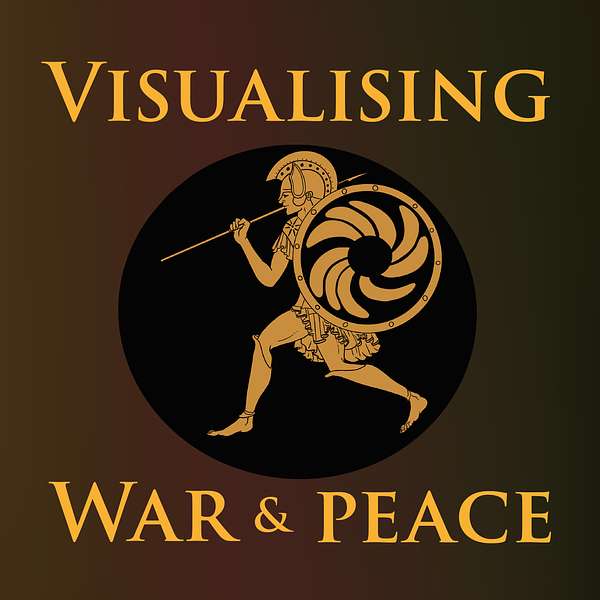
Visualising War and Peace
How do war stories work? And what do they do to us? Join University of St Andrews historian Alice König and colleagues as they explore how war and peace get presented in art, text, film and music. With the help of expert guests, they unpick conflict stories from all sorts of different periods and places. And they ask how the tales we tell and the pictures we paint of peace and war influence us as individuals and shape the societies we live in.
Visualising War and Peace
Combating Reductive Refugee Narratives with Lina Fadel
This episode is part of a mini series exploring forced displacement as one of the many legacies of conflict. Alice interviews Dr Lina Fadel, an Assistant Professor at Heriot-Watt University. With a background in languages and intercultural studies, Lina’s research looks at how we navigate sameness and difference in multicultural contexts. She is particularly interested in how people reconstruct their identities and engage in home-making following displacement, and she has done a lot of work in recent years with Syrian refugees in Scotland. As well as publishing academic articles, Lina recently performed a one-woman show at the Edinburgh Fringe, designed to ‘expose the double standards that exist both at the UK border and in the media’s portrayal of refugees.’ As Lina described it, ‘This was my chance to speak out publicly about the injustices committed against migrants, refugees and asylum seekers and to reflect on how we think and speak of them in our everyday conversations.’
During the episode Lina shares her own story of forced migration from Syria to Scotland, and discusses some of the challenges that she has faced as she has made a new home in the UK. In particular, we reflect on the hard work that forced migrants have to do to establish a sense of belonging, and the ways in which people around them can undermine that hard work: for example, by asking them when they plan to 'go home', or by questioning their right to have opinions about their adopted country. Lina particularly recounts a challenging conversation she had with a taxi driver in Edinburgh (narrated in this article, 'But you don't look like a Syrian'), and some uncomfortable exchanges about Brexit.
We also discuss toxic representations of refugees and migrants in the media and politics. Lina reflects on the different connotations that are associated with those two different terms ('refugee' and 'migrant'), and wider tendencies to categories some forced migrants as 'worthy' and others as not. She also gets us thinking about who controls knowledge production and storytelling about migrants (largely people with no lived experience of migration), and explains what she means by 'the tyranny of the single narrative' - i.e. reductive storytelling, that flattens all migration experiences into one simple, often negative account, that does not do justice to the diversity or complexity of different migrant journeys.
Lina's solution is to call for more storytelling. As she puts it, 'there is no act more generous or humane than letting someone tell their story the way they want it to be heard, and actively listening to them, with humility and self-awareness’. She advocates strongly for giving refugees and forced migrants spaces and platforms to tell their own stories, in their own words; and she has valuable suggestions about how ordinary people in their day to day lives can listen actively, humbly, and with curiosity. As she notes, 'integration' is a two-way process, and there is learning and sharing to be done in multiple directions. Lina urges us to approach current discussions of the so-called 'refugee crisis' as a 'crisis of storytelling' - one which we can all help solve.
We hope you enjoy the episode. You can find out more about our wider work on Visualising Forced Migration via our project website.
Our theme music was composed by Jonathan Young.
The show was mixed by Zofia Guertin.